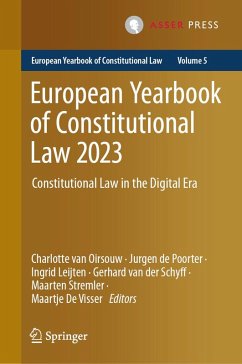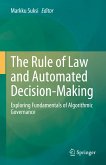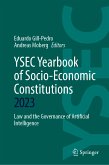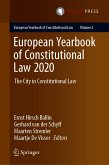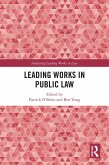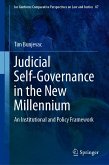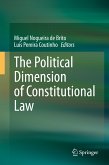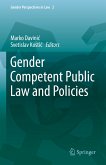The European Yearbook of Constitutional Law (EYCL) is an annual publication devoted to the study of constitutional law. It aims to provide a forum for in-depth analysis and discussion of new developments in the field, both in Europe and beyond.
This book addresses the theme Constitutional Law in the Digital Era. Societies are increasingly affected by the use of digital technologies by both public and private actors. This has resulted in a range of normative questions that require a constitutional response. The book explores a number of issues concerning the relationship between the impact of digitalisation and constitutional values by examining the constitutional challenges arising from the increasing use of digital technologies and develops potential constitutional responses and remedies to these challenges.
This volume will be of special interest to constitutional and legal scholars who are interested in EU and national constitutional law, as well as to social scientists more generally (e.g. governance, sociology, science and technology, as well as computer and data scientists). In addition, the book is relevant for judges, government officials and policy-makers who work on the intersection of digitalisation and (EU) constitutional law.
Charlotte van Oirsouw is a PhD researcher at Utrecht University School of Law, Department of Constitutional and Administrative Law. Jurgen de Poorter is State Councillor at the Dutch Council of State and Professor at Tilburg Law School, Department of Public Law and Governance. Ingrid Leijten is Professor at Tilburg Law School, Department of Public Law and Governance. Gerhard van der Schyff is Associate Professor at Tilburg Law School, Department of Public Law and Governance. Maarten Stremler is Assistant Professor at Maastricht University, Faculty of Law, Department of Public Law. Maartje De Visser is Professor at Yong Pung How School of Law, Singapore Management University.
Chapter 10 is available open access under a Creative Commons Attribution 4.0 International License via link.springer.com.
This book addresses the theme Constitutional Law in the Digital Era. Societies are increasingly affected by the use of digital technologies by both public and private actors. This has resulted in a range of normative questions that require a constitutional response. The book explores a number of issues concerning the relationship between the impact of digitalisation and constitutional values by examining the constitutional challenges arising from the increasing use of digital technologies and develops potential constitutional responses and remedies to these challenges.
This volume will be of special interest to constitutional and legal scholars who are interested in EU and national constitutional law, as well as to social scientists more generally (e.g. governance, sociology, science and technology, as well as computer and data scientists). In addition, the book is relevant for judges, government officials and policy-makers who work on the intersection of digitalisation and (EU) constitutional law.
Charlotte van Oirsouw is a PhD researcher at Utrecht University School of Law, Department of Constitutional and Administrative Law. Jurgen de Poorter is State Councillor at the Dutch Council of State and Professor at Tilburg Law School, Department of Public Law and Governance. Ingrid Leijten is Professor at Tilburg Law School, Department of Public Law and Governance. Gerhard van der Schyff is Associate Professor at Tilburg Law School, Department of Public Law and Governance. Maarten Stremler is Assistant Professor at Maastricht University, Faculty of Law, Department of Public Law. Maartje De Visser is Professor at Yong Pung How School of Law, Singapore Management University.
Chapter 10 is available open access under a Creative Commons Attribution 4.0 International License via link.springer.com.
Dieser Download kann aus rechtlichen Gründen nur mit Rechnungsadresse in A, B, BG, CY, CZ, D, DK, EW, E, FIN, F, GR, HR, H, IRL, I, LT, L, LR, M, NL, PL, P, R, S, SLO, SK ausgeliefert werden.

